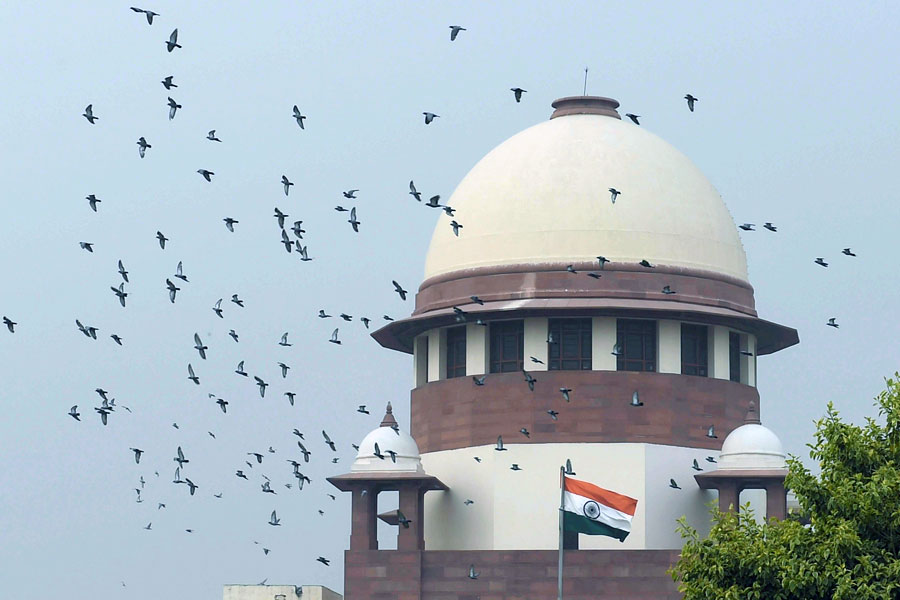Prof. Ravindra Gupta of Cambridge University, one of the top scientists working on the worrying new mutant strain of the coronavirus, has said: “This virus is potentially on a pathway for vaccine escape, it has taken the first couple of steps towards that.”
The BBC, to whom Gupta gave an interview, explained: “Vaccine escape happens when the virus changes so it dodges the full effect of the vaccine and continues to infect people. This may be the most concerning element of what is happening with the virus. This variant is just the latest to show the virus is continuing to adapt as it infects more and more of us.”
Gupta, who is professor of clinical microbiology at the Cambridge Institute of Therapeutic Immunology and Infectious Disease — he was included in Time magazine’s 100 Most Influential People in 2020 — revealed that the mutation has increased infectivity two-fold in laboratory experiments.
He added: “It is rapidly increasing, that’s what’s worried government, we are worried, most scientists are worried.”
The crucial question is whether vaccines will remain effective against the virus. The answer seems to be yes. But whether that will remain the case if the virus continues to mutate further is something scientists are currently examining.
All three leading vaccines develop an immune response against the existing spike, which is why the question comes up, the BBC said.
Vaccines train the immune system to attack several different parts of the virus, so even though part of the spike has mutated, the vaccines should still work.
“But if we let it add more mutations, then you start worrying,” Gupta commented.
The spread of the mutant strain has forced Boris Johnson’s government to put London and southeast and east of England into “Tier 4” — almost equivalent to a full lockdown — as of midnight on Saturday. In common parlance, “Christmas has been cancelled”, with Boris suffering a political backlash from even Tory MPs.
The new strain is said to be “70 per cent” more transmissible than the old one. On the BBC’s Andrew Marr Show on Sunday, health secretary Matt Hancock was asked: “Is the coronavirus under control?”
There were calls for his sacking after he admitted: “No. It’s not. The new variant is out of control.”
As a result, India has banned flights to the UK until the end of year, joining Canada and members of the EU who have adopted similar steps.
Whether this will affect the shipment of fresh food and essential supplies — and the vaccine — in the run up to Christmas remains to be seen.
According to reports in the Financial Times and elsewhere, “the World Health Organisation said its Evolution Working Group is working closely with the UK medical authorities to understand how the variant, now called B.1.1.7, is likely to affect the course of the pandemic.
“It has been detected in the Netherlands, Denmark and Australia. Aspects of B.1.1.7 give cause for concern. One is the unprecedented number of mutations it carries. The other is the speed with which it is supplanting other strains of the Sars-Cov-2 virus in south-east England.”
Jeffrey Barrett, director of the Covid Genomics Initiative at the Wellcome Sanger Institute, said 23 letters in the viral genetic code had changed, of which 17 might affect the behaviour of the virus — in particular helping it to enter and propagate within human cells.
“This new variant is very concerning, and is unlike anything we have seen so far in the pandemic,” he said.
One mutation called N501Y alters the most important part of the spike, known as the “receptor-binding domain”.
This is where the spike makes first contact with the surface of the body’s cells.
Any changes that make it easier for the virus to get inside are likely to give it an edge.
“It looks and smells like an important adaptation,” said Nick Loman, professor of Microbial Genomics and Bioinformatics at Birmingham University.
The other mutation — a H69/V70 deletion, in which a small part of the spike is removed — has emerged several times before, including famously in infected mink. Studies by the Gupta Lab suggest the deletion makes antibodies from the blood of survivors less effective at attacking the virus.
The mutant virus is also the subject of investigation by Science, one of the top journals in the west.
It had set off alarm bells, it said, but its importance remains unclear.
It reported that scientists “are hard at work trying to figure out whether B.1.1.7 is really more adept at human-to-human transmission—not everyone is convinced yet—and if so, why. They’re also wondering how it evolved so fast. B.1.1.7 has acquired 17 mutations all at once, a feat never seen before.”
It quoted Andrew Rambaut, a molecular evolutionary biologist at the University of Edinburgh: “There’s now a frantic push to try and characterise some of these mutations in the lab.”
Science said “getting definitive answers could take months. But Ravindra Gupta, a virologist at the University of Cambridge has made a start. The first results (of his experiments) should appear just after Christmas, Gupta says.”











